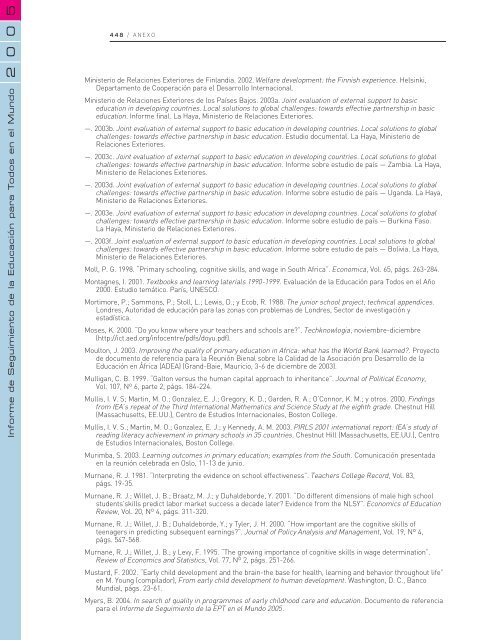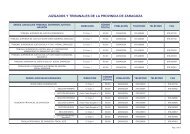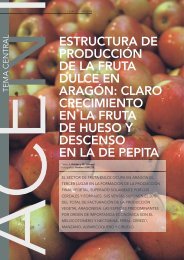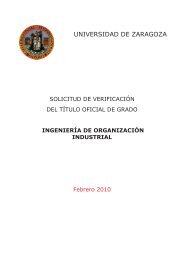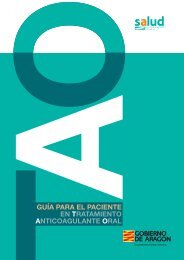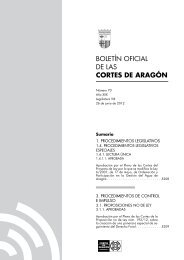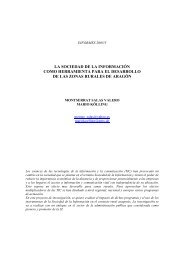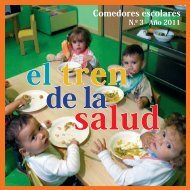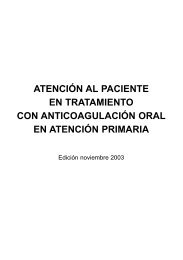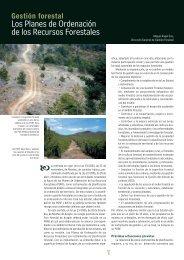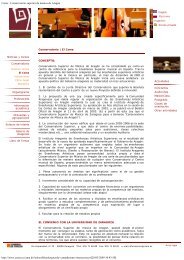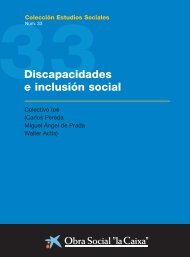Educación para todos: el imperativo de la calidad - unesdoc - Unesco
Educación para todos: el imperativo de la calidad - unesdoc - Unesco
Educación para todos: el imperativo de la calidad - unesdoc - Unesco
Create successful ePaper yourself
Turn your PDF publications into a flip-book with our unique Google optimized e-Paper software.
0<br />
0<br />
5<br />
448 / ANEXO<br />
2<br />
Informe <strong>de</strong> Seguimiento <strong>de</strong> <strong>la</strong> <strong>Educación</strong> <strong>para</strong> Todos en <strong>el</strong> Mundo<br />
Ministerio <strong>de</strong> R<strong>el</strong>aciones Exteriores <strong>de</strong> Fin<strong>la</strong>ndia. 2002. W<strong>el</strong>fare <strong>de</strong>v<strong>el</strong>opment: the Finnish experience. H<strong>el</strong>sinki,<br />
Departamento <strong>de</strong> Cooperación <strong>para</strong> <strong>el</strong> Desarrollo Internacional.<br />
Ministerio <strong>de</strong> R<strong>el</strong>aciones Exteriores <strong>de</strong> los Países Bajos. 2003a. Joint evaluation of external support to basic<br />
education in <strong>de</strong>v<strong>el</strong>oping countries. Local solutions to global challenges: towards effective partnership in basic<br />
education. Informe final. La Haya, Ministerio <strong>de</strong> R<strong>el</strong>aciones Exteriores.<br />
—. 2003b. Joint evaluation of external support to basic education in <strong>de</strong>v<strong>el</strong>oping countries. Local solutions to global<br />
challenges: towards effective partnership in basic education. Estudio documental. La Haya, Ministerio <strong>de</strong><br />
R<strong>el</strong>aciones Exteriores.<br />
—. 2003c. Joint evaluation of external support to basic education in <strong>de</strong>v<strong>el</strong>oping countries. Local solutions to global<br />
challenges: towards effective partnership in basic education. Informe sobre estudio <strong>de</strong> país — Zambia. La Haya,<br />
Ministerio <strong>de</strong> R<strong>el</strong>aciones Exteriores.<br />
—. 2003d. Joint evaluation of external support to basic education in <strong>de</strong>v<strong>el</strong>oping countries. Local solutions to global<br />
challenges: towards effective partnership in basic education. Informe sobre estudio <strong>de</strong> país — Uganda. La Haya,<br />
Ministerio <strong>de</strong> R<strong>el</strong>aciones Exteriores.<br />
—. 2003e. Joint evaluation of external support to basic education in <strong>de</strong>v<strong>el</strong>oping countries. Local solutions to global<br />
challenges: towards effective partnership in basic education. Informe sobre estudio <strong>de</strong> país — Burkina Faso.<br />
La Haya, Ministerio <strong>de</strong> R<strong>el</strong>aciones Exteriores.<br />
—. 2003f. Joint evaluation of external support to basic education in <strong>de</strong>v<strong>el</strong>oping countries. Local solutions to global<br />
challenges: towards effective partnership in basic education. Informe sobre estudio <strong>de</strong> país — Bolivia. La Haya,<br />
Ministerio <strong>de</strong> R<strong>el</strong>aciones Exteriores.<br />
Moll, P. G. 1998. “Primary schooling, cognitive skills, and wage in South Africa”. Economica, Vol. 65, págs. 263-284.<br />
Montagnes, I. 2001. Textbooks and learning <strong>la</strong>terials 1990-1999. Evaluación <strong>de</strong> <strong>la</strong> <strong>Educación</strong> <strong>para</strong> Todos en <strong>el</strong> Año<br />
2000. Estudio temático. París, UNESCO.<br />
Mortimore, P.; Sammons, P.; Stoll, L.; Lewis, D.; y Ecob, R. 1988. The junior school project; technical appendices.<br />
Londres, Autoridad <strong>de</strong> educación <strong>para</strong> <strong>la</strong>s zonas con problemas <strong>de</strong> Londres, Sector <strong>de</strong> investigación y<br />
estadística.<br />
Moses, K. 2000. “Do you know where your teachers and schools are”. Techknowlogia, noviembre-diciembre<br />
(http://ict.aed.org/infocentre/pdfs/doyu.pdf).<br />
Moulton, J. 2003. Improving the quality of primary education in Africa: what has the World Bank learned. Proyecto<br />
<strong>de</strong> documento <strong>de</strong> referencia <strong>para</strong> <strong>la</strong> Reunión Bienal sobre <strong>la</strong> Calidad <strong>de</strong> <strong>la</strong> Asociación pro Desarrollo <strong>de</strong> <strong>la</strong><br />
<strong>Educación</strong> en África (ADEA) (Grand-Baie, Mauricio, 3-6 <strong>de</strong> diciembre <strong>de</strong> 2003).<br />
Mulligan, C. B. 1999. “Galton versus the human capital approach to inheritance”. Journal of Political Economy,<br />
Vol. 107, Nº 6, parte 2, págs. 184-224.<br />
Mullis, I. V. S; Martin, M. O.; Gonzalez, E. J.; Gregory, K. D.; Gar<strong>de</strong>n, R. A.; O’Connor, K. M.; y otros. 2000. Findings<br />
from IEA’s repeat of the Third International Mathematics and Science Study at the eighth gra<strong>de</strong>. Chestnut Hill<br />
(Massachusetts, EE.UU.), Centro <strong>de</strong> Estudios Internacionales, Boston College.<br />
Mullis, I. V. S.; Martin, M. O.; Gonzalez, E. J.; y Kennedy, A. M. 2003. PIRLS 2001 international report: IEA’s study of<br />
reading literacy achievement in primary schools in 35 countries. Chestnut Hill (Massachusetts, EE.UU.), Centro<br />
<strong>de</strong> Estudios Internacionales, Boston College.<br />
Murimba, S. 2003. Learning outcomes in primary education; examples from the South. Comunicación presentada<br />
en <strong>la</strong> reunión c<strong>el</strong>ebrada en Oslo, 11-13 <strong>de</strong> junio.<br />
Murnane, R. J. 1981. “Interpreting the evi<strong>de</strong>nce on school effectiveness”. Teachers College Record, Vol. 83,<br />
págs. 19-35.<br />
Murnane, R. J.; Willet, J. B.; Braatz, M. J.; y Duhal<strong>de</strong>bor<strong>de</strong>, Y. 2001. “Do different dimensions of male high school<br />
stu<strong>de</strong>nts’skills predict <strong>la</strong>bor market success a <strong>de</strong>ca<strong>de</strong> <strong>la</strong>ter Evi<strong>de</strong>nce from the NLSY”. Economics of Education<br />
Review, Vol. 20, Nº 4, págs. 311-320.<br />
Murnane, R. J.; Willet, J. B.; Duhal<strong>de</strong>bor<strong>de</strong>, Y.; y Tyler, J. H. 2000. “How important are the cognitive skills of<br />
teenagers in predicting subsequent earnings”. Journal of Policy Analysis and Management, Vol. 19, Nº 4,<br />
págs. 547-568.<br />
Murnane, R. J.; Willet, J. B.; y Levy, F. 1995. “The growing importance of cognitive skills in wage <strong>de</strong>termination”.<br />
Review of Economics and Statistics, Vol. 77, Nº 2, págs. 251-266.<br />
Mustard, F. 2002. “Early child <strong>de</strong>v<strong>el</strong>opment and the brain-the base for health, learning and behavior throughout life”<br />
en M. Young (compi<strong>la</strong>dor), From early child <strong>de</strong>v<strong>el</strong>opment to human <strong>de</strong>v<strong>el</strong>opment. Washington, D. C., Banco<br />
Mundial, págs. 23-61.<br />
Myers, B. 2004. In search of quality in programmes of early childhood care and education. Documento <strong>de</strong> referencia<br />
<strong>para</strong> <strong>el</strong> Informe <strong>de</strong> Seguimiento <strong>de</strong> <strong>la</strong> EPT en <strong>el</strong> Mundo 2005.


